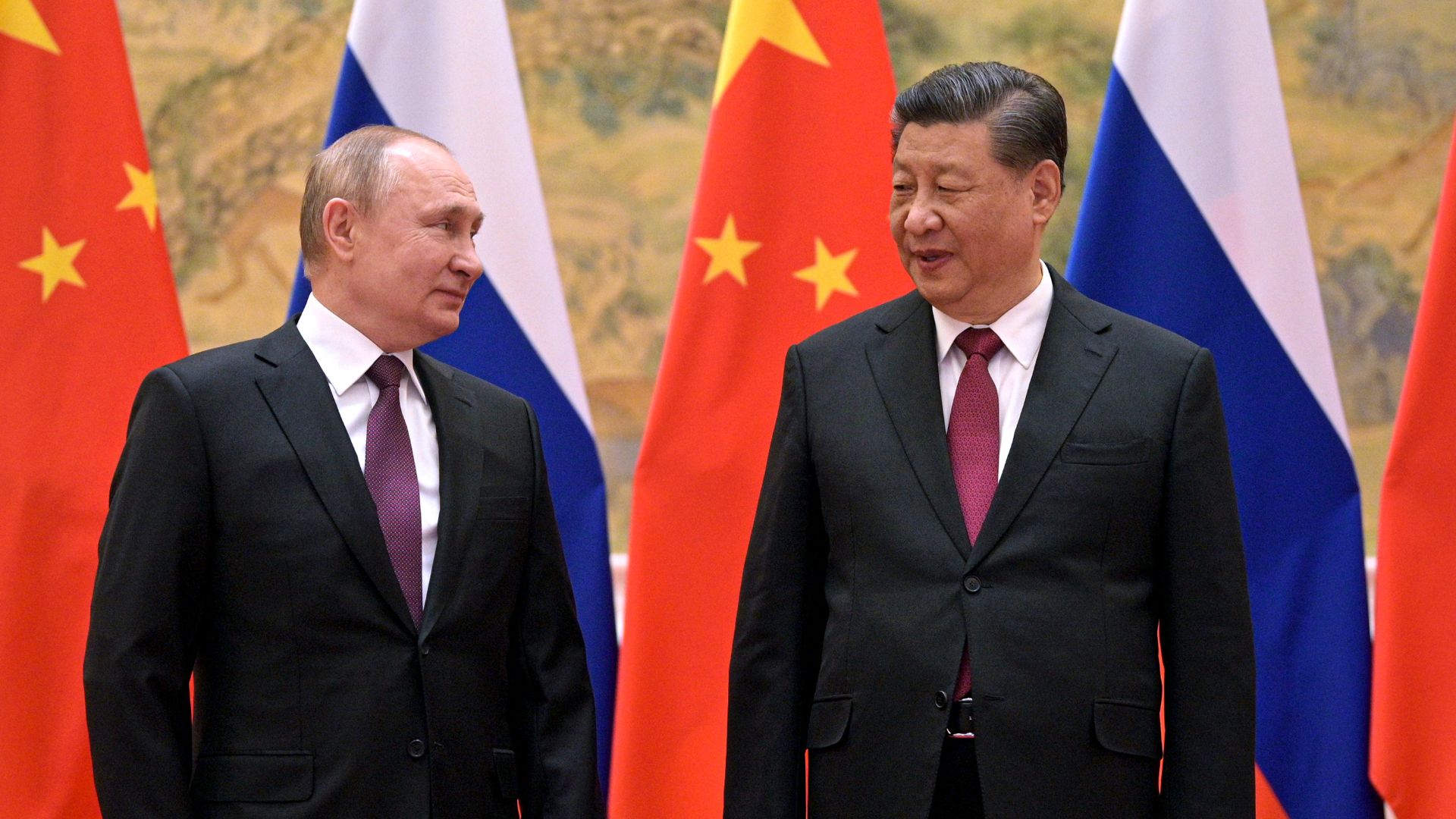SMART POWER
China´s and Russia´s increasing influence in Southeast Asia

Der chinesische Präsident Xi Jinping und der russische Präsident Wladimir Putin
© picture alliance / ASSOCIATED PRESS | Alexei DruzhininBeijing’s and Moscow’s strategic integration of diplomatic, military, and economic instruments - Joseph Nye calls the mix “smart power” - exert influence in Southeast Asia. Democratic states are concerned. But they must move beyond platitudes to counter Beijing’s and Moscow’s influence. Credible, pragmatic support that delivers tangible benefits on the ground are needed if the West wants to remain influential in the region.
With its geopolitical standing diminished in Europe due to sanctions and diplomatic isolation, Russia views Southeast Asia as a critical region to expand its influence. Southeast Asia offers what Moscow needs: partners willing to engage, and governments less concerned with democratic credentials.
Marlène Laruelle, an international relations expert, explains Russia’s way of exerting power towards specific objectives: to counter the West, to support illiberal regimes and to expand its sphere of influence. Turning to the East checks all boxes. From Myanmar to Vietnam, Moscow is building new partnerships with old tools: energy deals, arms sales, military cooperation and nuclear partnership. However, the Kremlin isn’t just sending weapons. It is exporting influence. Russian cybersecurity firm Kaspersky enjoys numerous deals across the region whilst its messaging app Telegram is perceived as a safer alternative to Western tech platforms.
Cultural diplomacy is also in play. Embassies and cultural centers promote Russian legacies in science and culture through language classes, exchange programs, foreign assistance, films and media collaborations. In countries like Myanmar and Vietnam, these narratives resonate well, helping Moscow to solidify its influence as a science and military superpower and a counterbalance not only to the West but also towards a growing China.
China’s Influence: Carrots and Sticks
If Russia reenters Southeast Asia strategically, China arrives more assertively. This resonates more with Joseph Nye’s definition of soft power - a country’s ability to influence other nations without resorting to coercive means.
In 2014, President Xi Jinping spoke of a “Big Chinese Family” with recognition of Overseas Chinese to participate in China’s economic transformation and development. But these Overseas Chinese groups do not stop at business deals. In 2016-2017, the Singaporean government faced pressures from local Chinese businessmen for its engagement with military training in Taiwan. In 2019, several Overseas Chinese Groups denounced Malaysian institutions, which supported protests in Hong Kong against mainland China.
Beijing’s tech reach is another impactful tool. Investments in TikTok, the development of DeepSeek, and the export of affordable telecommunications infrastructure like Huawei smartphones allow Beijing to shape public discourse and suppress unfavorable narratives. These platforms serve both as soft power tools and as instruments of surveillance and censorship.
Beijing intimidates Southeast Asian nations. Many countries see China as a reliable economic partner but do not trust Beijing’s political intentions. In Myanmar, Beijing supports the military junta both militarily and economically. Yet it also exerts coercive pressure - as seen in its campaign to crack down on online scammers in Northern Myanmar. The crackdown was initially resisted by the junta and later led to armed conflict, which was resolved under Chinese mediation.
Seeking Alternatives
In response to growing pressures from great powers, Southeast Asian countries are searching for alternatives. Unfortunately, the global economic crisis has diminished Western engagement in the region, resulting in a vacuum of democratic leadership.
Japan and South Korea, by contrast, remain active through government-led public diplomacy, culture influence, aid and economic ties. Despite this goodwill, their influences end at the cultural and economic borders. Tokyo and Seoul's pro-democracy values also limit deeper cooperation with autocratic governments in Southeast Asia. Their commitment to human rights and liberal norms may constrain their ability to compete with China and Russia’s unconditional support for illiberal regimes.
Survival of the Fittest
In Southeast Asia, Russia and China are spreading their narratives and expanding their spheres of influence. If democracies want to stay relevant, they need a smarter approach. Instead of ending at a cultural influence, it requires a step up to cooperate on several ends: tech, media, economy and security. Democracies must compete not just with values, but with pragmatic offers. That includes a more flexible and smarter approach: mixing incentives with firm expectations, much like China’s own blend of carrots and sticks. Democracies must also continue to engage illiberal regimes while remaining firm on values.
Southeast Asia is not choosing sides. Instead, it is turning to who is showing up consistently, credibly and when it counts. Influence isn’t won with words but with a smart power approach.
*Hnin Wint Naing is Regional Communication Officer Southeast and East Asia at the Friedrich Naumann Foundation for Freedom.
